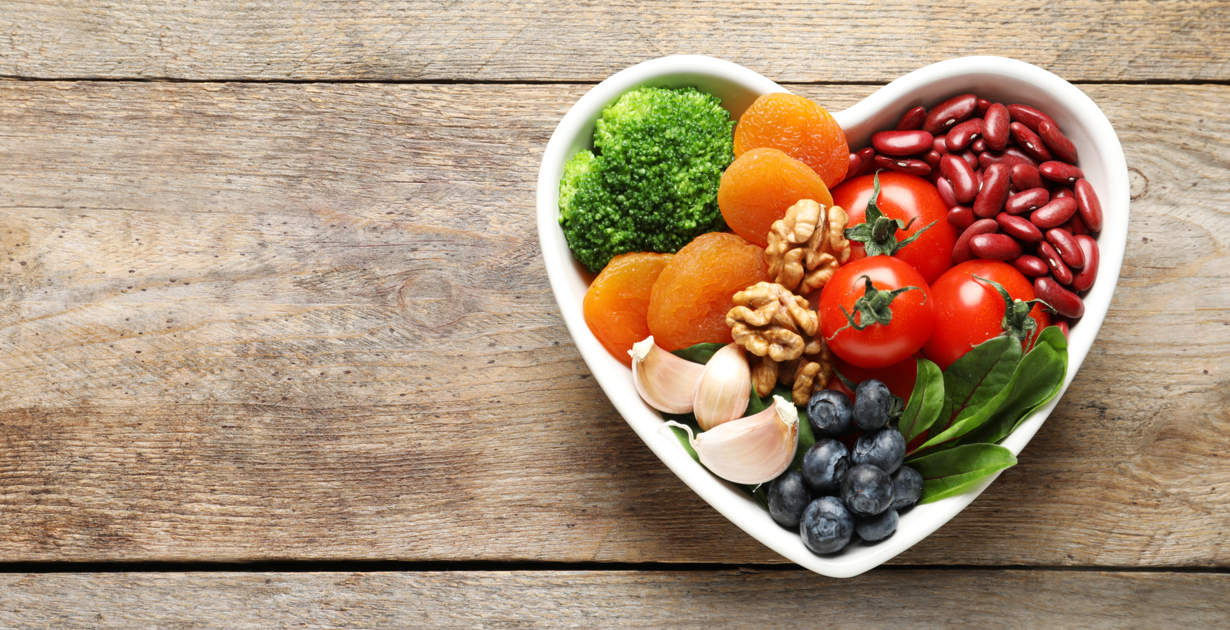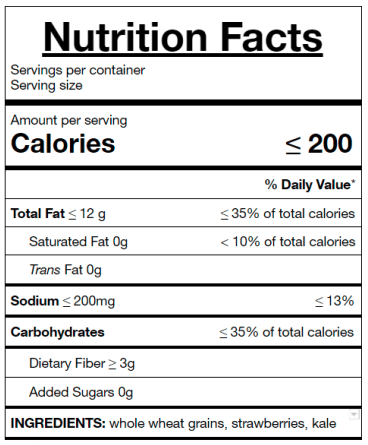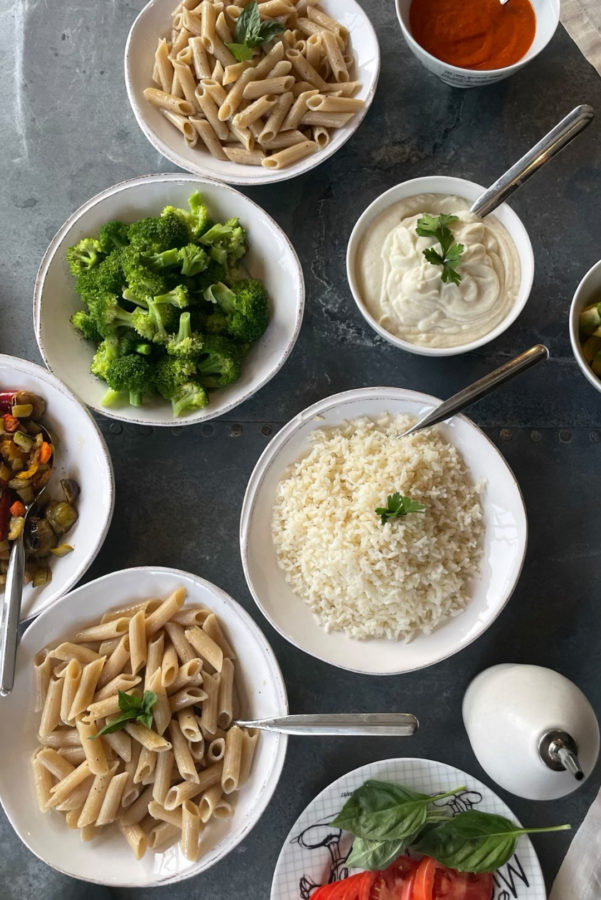
An excellent way to lower the chance of some types of cancer is to follow a cancer prevention diet. Reduced consumption of red meat and eating a plant-based food diet can dramatically reduce the chance of developing certain types. For the right micronutrients as well as antioxidants, it's important to eat a wide range of fruits and vegetables. These foods can also help prevent other diseases.
American Institute for Cancer Research suggests eating a diet high on fruits and vegetables in order to decrease your chance of developing the disease. They also suggest limiting the intake of processed meats, and salty foods. You can also increase your fiber intake. This can help prevent you from developing colon, stomach, or bowel cancer. Sugar consumption should also be restricted as it may lead to obesity.
The development of cancer is not just dependent on diet and lifestyle factors. Simple lifestyle and diet changes can prevent approximately 30%-40% of all cancers.

Numerous studies have shown that eating more vegetables and fruits can lower the risk of developing many types of cancer. A high intake can help reduce the risk of esophageal, lung, and mouth cancers. Fruits and vegetables are also excellent sources of fiber and minerals.
In the same way, eating a lot of dairy products can help lower your risk of certain cancers. However, scientists are still unsure why this relationship exists. Many experts recommend low-fat dairy options. Additionally, fermented dairy products, such as yogurt with live cultures, are beneficial as a probiotic. Research suggests that probiotics can be used in the treatment of certain types of cancer.
Researchers also discovered that whole grains are a good way to reduce your chance of getting certain cancers. Whole grains include wheat and rye as well as triticale. Unlike processed carbohydrates, these types of food can boost your immune system and have antioxidant properties. Studies have also shown that eating more cruciferous vegetables, such as cabbage, broccoli, cauliflower, and kale, can lower the risk of certain cancers.
Reduce alcohol intake is another factor that can prevent cancer. A higher chance of getting cancer if you drink more than two glasses of alcohol each day than those who have less. As a rule, men should limit their alcohol intake to no more than two drinks a day, while women should limit themselves to one drink a day.

While there is no one right way to approach cancer prevention, it is wise that you follow the World Cancer Research Fund's and the American Institute for Cancer Research's recommendations. Their diet emphasizes a low-calorie, low-fat, and low-processed-foods diet, including reduced amounts of red meat, and a diet rich in fruits and vegetables. Avoid smoked and processed meats. They may increase the chance of certain cancers.
While there is no single dietary method that can be considered the best way to prevent cancer, it is clear that a diet rich in fruits and vegetables, fiber, and other healthy unsaturated fats can provide the necessary nutrients to combat the disease.
FAQ
What should my weight be for my age and height? BMI calculator & chart
Calculating your body mass index (BMI), is the best method to calculate how much weight to lose. A healthy BMI range is between 18.5 and 24.9. To lose weight, you should aim for a loss of 10 pounds per year. Simply enter your height/weight into the BMI calculator.
This BMI chart can help you find out if or not you are obese.
What's the best diet?
There are many factors that influence the best diet, including your gender, age, weight, health condition, lifestyle, and personal preferences. You also need to consider how much energy you expend during exercise, whether you prefer low-calorie foods, and if you enjoy eating fruits and vegetables.
Intermittent fasting may be a good choice if you want to lose weight. Intermittent eating means you only eat specific meals throughout the day. It's not like three big meals. This method may work better than traditional diets which include daily calorie counts.
Intermittent fasting has been shown to improve insulin sensitivity, reduce inflammation and lower the risk of developing diabetes. Other studies suggest that intermittent fasting could promote fat reduction and improve overall body structure.
How often do I need to exercise?
Fitness is key to a healthy lifestyle. You don't have to exercise for a certain amount of time. The key is to find something that you enjoy and to stick with it.
If you work out three times a week, then aim to complete 20-30 minutes of moderate intensity physical activity. Moderate intensity will mean that you'll continue to be exerting yourself afterward. This type of workout burns around 300 calories.
You can walk for 10 minutes every day if that is what you prefer. Walking is low impact and easy on your joints.
Jogging is an alternative to running. You can do it for as little as 15 minutes each day. Running is a great exercise to build muscle tone and burn excess calories.
Start slowly if you aren't used to doing exercise. Begin by doing 5 minutes of cardio each day, a few times per week. Gradually increase the duration until you reach your goal.
Do I need to count calories?
Perhaps you are wondering what the best diet is for you. or "is counting calories necessary?" It depends on several factors such as your current health, personal goals, preferences, and overall lifestyle.
The Best Diet for Me - Which One is Right For You?
My current health, my personal goals and lifestyle will determine the best diet for me. There are many diets out there, some good and some bad. Some are better for certain people than others. What should I do then? What should I do?
This article aims at answering these questions. It begins by briefly describing the different diets available today. The pros and cons of each diet are then discussed. Finally, we'll look into how to choose the best one for you.
Let's first take a look at different diets.
Diet Types
There are three main types. Low fat, high protein, or ketogenic. Let's talk about them briefly.
Low Fat Diets
A low-fat diet is one that limits the intake of fats. This is accomplished by decreasing the intake of saturated fats like butter, cream cheese, and other dairy products. and replacing them with unsaturated fats (olive oil, avocados, etc.). A low fat diet is often recommended for those who want to lose weight quickly and easily. This diet can cause constipation, heartburn, and stomach problems. It can also lead to vitamin deficiencies, if someone doesn't get enough vitamins in their food.
High Protein Diets
High-protein diets limit carbohydrates and favor proteins. These diets are more protein-rich than others. They can help you build muscle mass, and also burn more calories. Unfortunately, they can't provide adequate nutrition for those who eat regularly. They are not suitable for all people because they can be restrictive.
Ketogenic Diets
Also known as keto diets, ketogenic diets are also called keto diets. They are high in fat, moderately high in protein, and low in carbohydrates. Athletes and bodybuilders use them because they allow them more time and harder training without getting tired. You must adhere to all side effects such nausea, headaches, fatigue.
What are the 7 best tips for a healthy and happy life?
-
Eat right
-
Exercise regularly
-
Sleep well
-
Make sure to drink plenty of water.
-
Get enough rest
-
Be happy
-
Smile often
What is the difference in fat and sugar?
Fat is an energy source that comes from food. Sugar is a sweet, naturally occurring substance in fruits and vegetables. Both fats (and sugars) have the exact same calories. Fats however, have more calories than sugars.
The body stores fats and they can lead to obesity. They cause cholesterol buildup in arteries which may lead to heart attacks and strokes.
Sugars provide instant energy and are rapidly absorbed by the body. This causes blood glucose levels in the body to rise. High blood sugar levels can cause type II diabetes.
What are 10 healthy habits?
-
Every day, eat breakfast.
-
Don't skip meals.
-
Keep a balanced diet.
-
Get plenty of water.
-
Take care of yourself.
-
Get enough sleep.
-
Avoid junk food.
-
Get at least one form of exercise each day.
-
Have fun
-
Make new friends.
Statistics
- This article received 11 testimonials and 86% of readers who voted found it helpful, earning it our reader-approved status. (wikihow.com)
- WHO recommends reducing saturated fats to less than 10% of total energy intake; reducing trans-fats to less than 1% of total energy intake; and replacing both saturated fats and trans-fats to unsaturated fats. (who.int)
- According to the 2020 Dietary Guidelines for Americans, a balanced diet high in fruits and vegetables, lean protein, low-fat dairy and whole grains is needed for optimal energy. (mayoclinichealthsystem.org)
- In both adults and children, the intake of free sugars should be reduced to less than 10% of total energy intake. (who.int)
External Links
How To
How to Keep Your Body Healthy
This project had one goal: to provide some tips on how to keep your body healthy. Understanding what you need to do to keep your health in good shape is the first step to maintaining your health. In order to achieve this we had to find out what exactly is good for our bodies. After looking at the various methods people use to improve their health, it became clear that there were many ways that we could benefit. Finally, these tips helped us to stay happier and healthier.
We started off by looking at the different types of food that we eat. We found that certain foods were bad for us, while others were good. We now know that sugar can be dangerous because it can cause weight gain. Fruits and vegetables, on the other hand are healthy because they are rich in vitamins and minerals that are vital for our bodies.
Next we considered exercise. Exercise improves the strength and energy of our bodies. It can also make us feel happier. There are many exercises you can do. Running, swimming, dancing, lifting weights, and playing sports are some examples. Another way to increase our strength is through yoga. Yoga is a great workout because it increases flexibility and improves breathing. We should avoid junk food and drink lots of water if we are trying to lose weight.
Finally, we talked about sleep. Sleep is an important thing that we must do each day. We become tired and stressed if we don't get enough rest. This leads to problems such as headaches, back pain, depression, heart disease, diabetes, and obesity. If we want to be healthy, we need to get enough sleep.